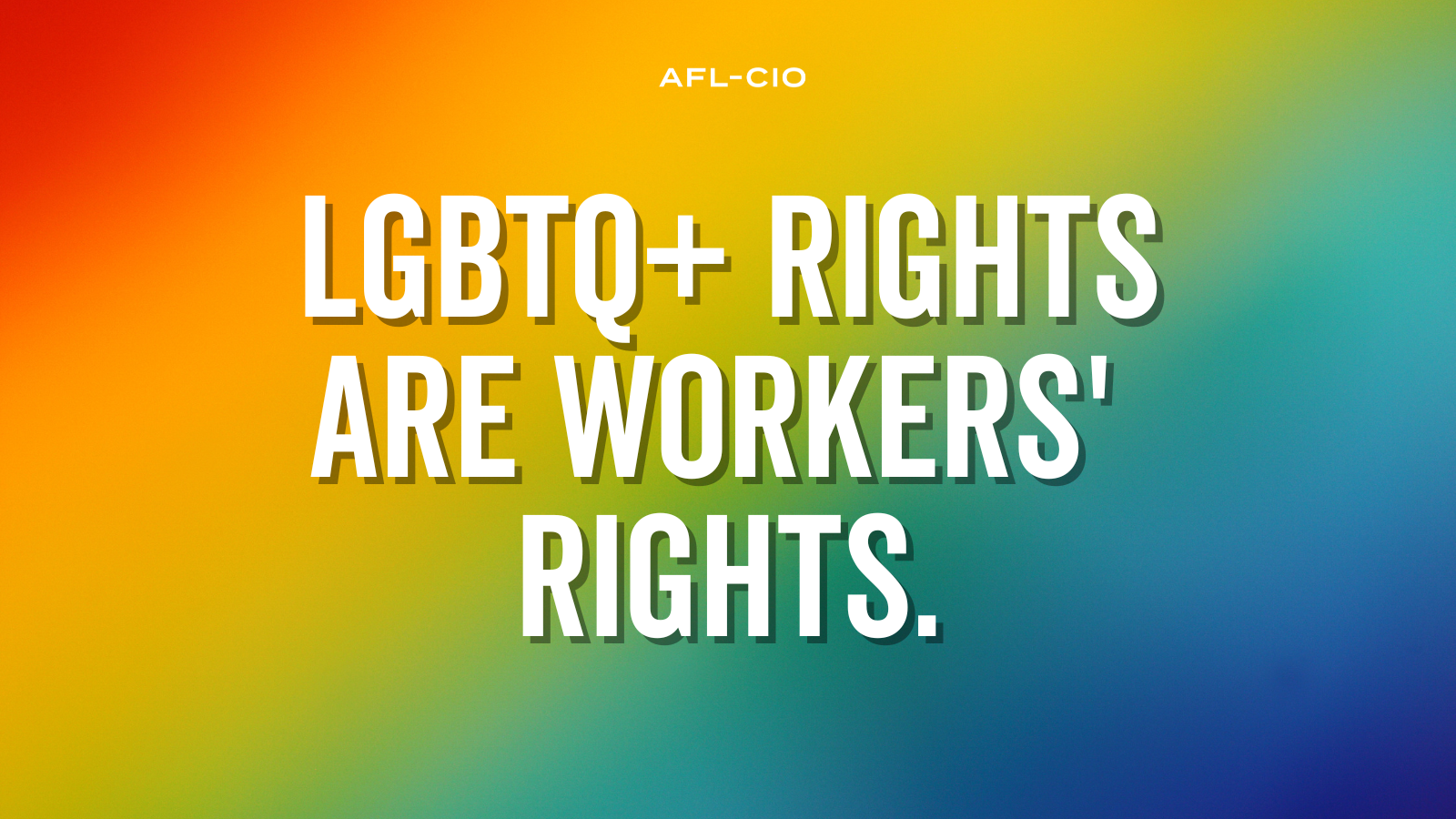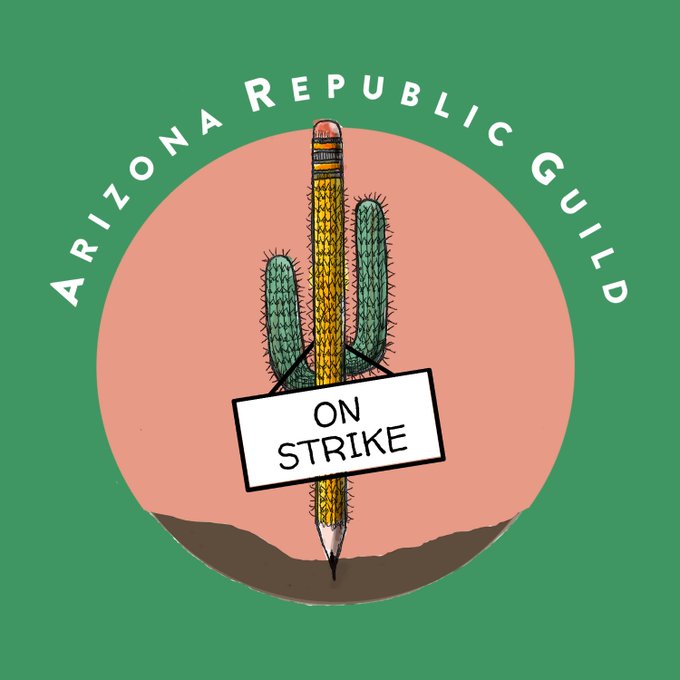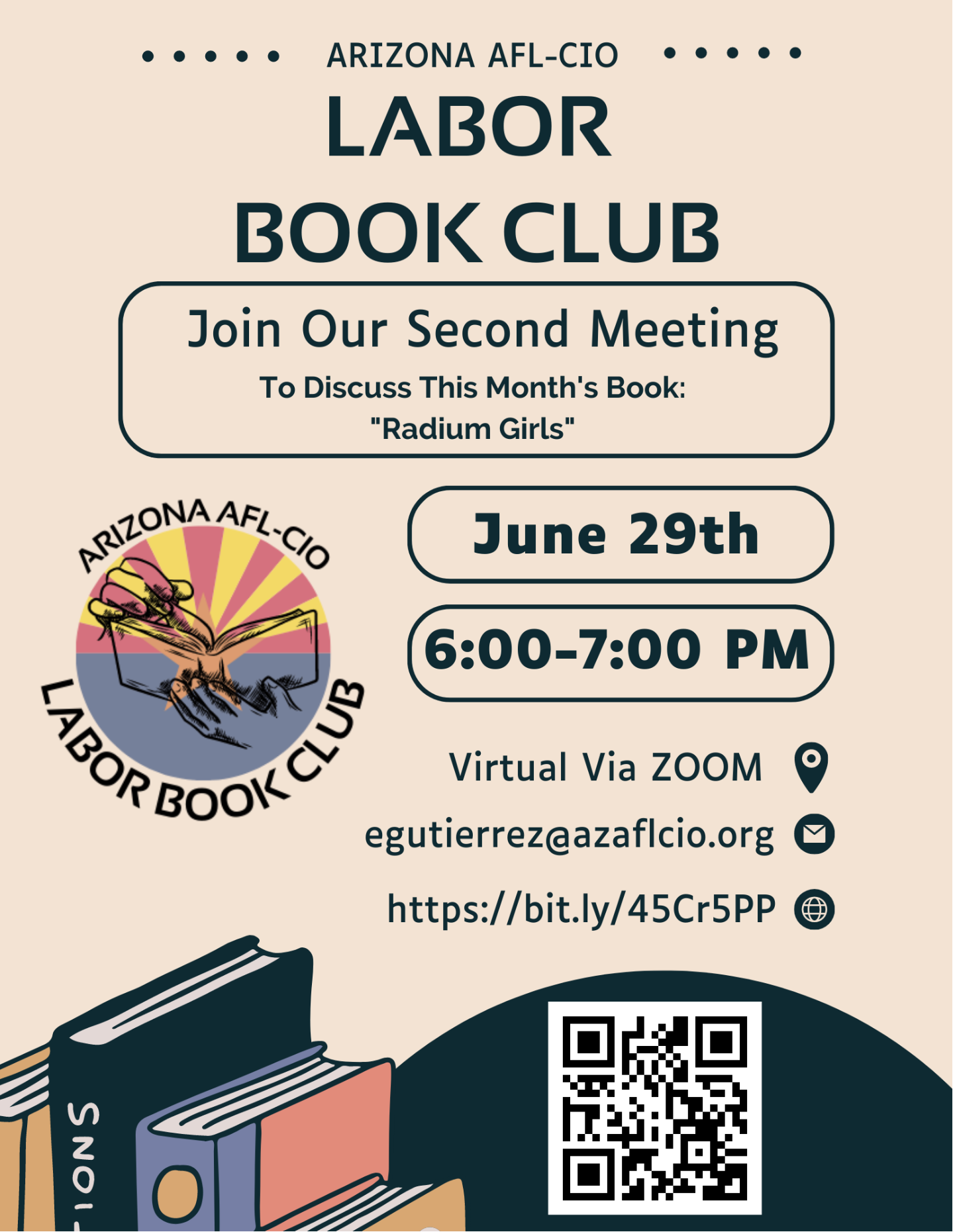|
|
John, |
|
For the last year and a half to two years, I have been honored to participate on a sub-committee of the Reimagining State Federations and CLCs for the National AFL-CIO. It’s called the Racial Justice Task Force, and its focus has been on changing the language in our constitution around racial justice and equity, not just racial equality. It also includes changes and additions to the language on LGBTQ rights and protections.
Our members already enjoy the guarantees of collective bargaining agreements, no matter what industry or what part of the country they happen to work in, but there still need to be improvements in some of those contracts when it comes to very important items like health care, pension benefits, and others, specifically in regards to domestic partnerships and same-sex marriages. There has to be a continued and conscientious effort by Labor leaders to be inclusive in the workplace, at the bargaining table, and within the leadership of the labor movement itself!
This June, in celebration of Pride Month, the AZ AFL-CIO would like to highlight significant events and leaders of the LGBTQ movement and history. Below, I'd like to share with you an insightful blog post, titled "LGBT History Month Pathway to Progress: The Founding of Pride at Work," from the National AFL-CIO's website on the founding of one of our constituency groups, Pride at Work, written on October 29, 2019 by Kenneth Quinnell. |
|
|
|
History has long been portrayed as a series of "great men" taking great action to shape the world we live in. In recent decades, however, social historians have focused more on looking at history "from the bottom up," studying the vital role that working people played in our heritage. Working people built, and continue to build, the United States. In our series, Pathway to Progress, we'll take a look at various people, places and events where working people played a key role in the progress our country has made, including those who are making history right now. In honor of LGBT History Month, we will take a look at the founding of Pride At Work (P@W).
Prior to 1969, the labor movement mostly ignored issues that affected LGBTQ working people. The events at Stonewall Inn and the rebellion that followed woke up many in the ranks of labor to the need to step up efforts to include all workers, including our LGBTQ siblings. After Stonewall, unions began to recognize that discrimination based on sexual orientation was another assault on working people, one that victimized union members and weakened efforts at solidarity among working families.
As the 1970s began, the AFT was the first union to pass a resolution against discrimination based on sexual orientation. In 1974, the Teamsters worked with the LGBTQ community members in San Francisco on a boycott against the anti-union Coors Brewing Co. Over the next few decades, support for LGBTQ rights in the labor movement continued to grow. The AFL-CIO passed a resolution that called for legislation to ban workplace discrimination based on sexual orientation. More and more unions started creating LGBTQ caucuses and opened up space for LGBTQ workers to be activists and open about their sexual orientation.
While some unions took the lead, the labor movement was largely silent on issues related to LGBTQ rights and issues. This lead LGBTQ union activists to come together to form Pride At Work. The activists met in New York in 1994, the 25th anniversary of the Stonewall rebellion. Earlier efforts at organizing had led to groups such as the Lesbian and Gay Labor Alliance (in the San Francisco Bay Area), the Lesbian and Gay Labor Network (New York) and the Gay and Lesbian Labor Activists Network (New England). Efforts such as these would eventually be consolidated into a larger LGBTQ workers organization, Pride At Work. In 1997, the organization was officially recognized by AFL-CIO as a constituency group.
Among Pride At Work's first campaigns were efforts to pressure Chrysler to ban anti-LGBTQ discrimination. Chrysler made the requested changes in 1999 and Ford and General Motors soon followed. Domestic partner benefits were gained a year later. Later, in 2005, P@W successfully convinced the AFL-CIO to support marriage equality. In 2012, the AFL-CIO supported the legal case that led to the national legal recognition of same-sex marriage.
Today, Pride At Work continues to educate the labor movement and wider culture about the importance of unions for LGBTQ workers and the value those workers provide employers. Pride@Work also supports electoral candidates that support LGBTQ workers and helps LGBTQ working people run for political office.
Click HERE to view original post. |
|
In solidarity, |
|
|
Fred Yamashita |
|
|
UPCOMING EVENTS & ACTIONS |
|
|
Happy Pride Month: What Does Your Union Mean to You?
The labor movement is intersectional. This means we fight for all working people—no matter the gender, race, ethnicity or any other identity. Those identities intersect with your own identity as a worker, as a parent, as a sibling. LGBTQ+ workers face retaliation and fear getting fired for standing with their co-workers. It’s hard for workers to see the very same corporations that celebrate pride turn around and hire anti-union-busting consultants and deny their workers the promise of a union contract. That’s why, this Pride Month, the AFL-CIO wants you to share what your union means to you. |
|
|
Support AZ Republic Journalist
On June 5th, the Arizona Republic Guild is walking off the job for 48 hours in response to Gannett’s unfair labor practices and in an effort to secure a fair contract that includes liveable wages, decent healthcare, and to protect the newsroom from further staffing cuts and outsourcing. After three years of bargaining, Gannett has shown time and time again it will throw up hurdles, drag its feet at the bargaining table and put shareholders ahead of its journalists and the communities we serve. By stalling, the company has been keeping wages low for many. Meanwhile, the cost of living in our area has continued to rise.
*Funds raised will go directly to the journalists who cannot afford to miss two days’ pay. |
|
2023 MALF Andy Ward Scholarship Packet AVAILABLE NOW!
Since 2002, the Maricopa Area Labor Federation has awarded the Andy Ward Scholarship to three applicants who are union members or the dependents of union members to help with the educational or vocational expenses.The awards this year will be in the amount of $2,000, $1,000, and $500, to applicants. The essay, cover sheet, and application are due by close of business on July 5th, 2023. Please send them to the MALF Education Committee Chair, AFT Arizona President Ralph Quintana, at [email protected]. |
|
Enhance Your Labor Leadership Skills at the Grace Carroll Rocky Mountain Labor School
This program is recognized as the premier training platform for labor leadership development in the Western United States. The curriculum is comprehensive and dynamic, designed to help you develop essential skills and knowledge to become a stronger, more informed activist in your workplace. You will also have the opportunity to collaborate with labor leaders from diverse unions, locals, and states to share experiences and build on successful strategies. This enlightening experience delivers exceptional value, and we encourage you to register today for this unparalleled opportunity to enhance your leadership skills.
Where: Montana Tech University in Butte, Montana When: Sunday, July 9th through Friday, July 14th, 2023 |
|
|
Join the Arizona AFL-CIO Labor Book Club
Our goal is to explore the history, impact, and ongoing struggle of the labor movement. This is an open community event, inviting union members, potential members, and anyone interested in the labor movement to come together and discuss books that highlight the lives of workers and the many facets of unionized labor.
Don't miss out on the fun; we hope to see you there, and be sure to spread the word! |
|
Julie Su Needs Your Help!
We know Su is the right person to support America’s workers. She’s never backed down from a fight when workers’ fundamental rights are on the line—and with your help, we’re not backing down either.
The problem? Well-heeled lobbyists and corporate special interests are spending big to block Su's confirmation because they know she puts working people first. Workers deserve a labor secretary who will fiercely defend us.
Call your senators now and tell them to vote to confirm Julie Su as secretary of the Department of Labor. |
|
Join Unemployed Workers United to Empower Tenants!
Unemployed Workers United has been organizing workers to strengthen tenant protections in Phoenix. Last March, we were successful in passing a city ordinance to prohibit housing discrimination against tenants who utilize public assistance, such as Section 8 and Social Security!
This means that starting April 6th, landlords can no longer turn away applicants based on their source of income in the city of Phoenix. In order to help identify potential tenants being discriminated against, we are distributing a community survey. Please share with your networks and any directly impacted individuals
|
|
Request to Speak at Legislative Committee Meetings
Sign up and 'Request to Speak' to weigh in on bills directly with State Representatives and Senators during our Legislative Committee Meetings every Friday at 9:30 AM! |
|
2023 Legislative Committee Meeting Alerts
Complete this form to be up on a list to get updates and alerts on the 2023 Legislative Session.
For additional questions, contact our Political Director; Joe Murphy at [email protected] |
|
Union Events and Action We want to uplift what you are doing for our members and our community!
Please fill out all the required information to have your Local's event uploaded to our Arizona AFL-CIO website or featured in our next Labor Dispatch. If you have any questions please reach out to Alina Cordoba, Communications & Operations Director at [email protected]. |
|
|
OPINION |
|
Are Unionized Gig Workers the Future of Work?
"Gig work is growing, but just because workers are leaving full-time jobs doesn’t mean they no longer need workplace protections. As freelancers become a larger proportion of the workforce, many new questions arise about how to meet their needs. Could unions be the answer to helping gig workers in our new economy?"
|
|
Celebrating Pride: In the States Roundup
"It's time once again to take a look at the ways working people are making progress in the states. Click on any of the links to follow the state federations on Twitter."
|
|
|
NATIONAL NEWS |
|
Supreme Court's Decision Will Not Stop Workers from Exercising Our Right to Strike
"Statement from AFL-CIO President Liz Shuler on the Supreme Court’s ruling in Glacier Northwest Inc. v. International Brotherhood of Teamsters: Today, the U.S. Supreme Court sided with corporations over working people. But when the facts are revealed on remand, it will be clear the union acted properly and the truck drivers’ strike was protected by federal law."
|
|
Thousands of Local Hotel Workers Move Closer to a Strike: 'Living in L.A. is no longer an option'
“A union is asking 15,000 workers at hotels in Los Angeles and Orange counties to authorize a strike during the height of tourist season. Unite Here Local 11 said contracts are expiring June 30 at 62 Southern California hotels, including luxury stays such as the Westin Bonaventure in downtown Los Angeles, the Fairmont Miramar in Santa Monica and the Beverly Wilshire in Beverly Hills. Union officials say they are asking for the strike authorization vote on June 8 to jump-start sluggish negotiations and convince hotel operators to seriously consider pay increases for their workers."
|
|
Ben & Jerry's Burlington Scoop Shop Unionization Effort Moves Forward
"Employees of Ben & Jerry’s flagship store in Burlington took another step toward forming the ice cream chain’s first union on Tuesday. A group of employees calling itself Scoopers United is seeking to join Workers United, an international union that has been involved in efforts to unionize Starbucks employees. A short press conference was held outside the Church Street scoop shop to announce the results of a key union vote. State Rep. Kate Logan, P/D-Burlington, was invited by the employees to oversee a “card check,” an important step toward officially forming a union. Logan said 35 of 39 staff voted in favor of unionizing."
|
|
US Asks Mexico to Review Alleged Denial of Workers' Rights at Draxton Facility
"The United States has asked Mexico to review whether workers at a Draxton facility in the Mexican city of Irapuato were being denied the rights to freedom of association and collective bargaining, the office of U.S. Trade Representative Katherine Tai said on Wednesday. Since the U.S.-Mexico-Canada agreement on trade, known as the USMCA, took effect in 2020, USTR has launched a number of labor rights complaints against facilities in Mexico, including cases that have paved the way for new unions to secure better pay and benefits. The U.S. had received information that hinted at the denial of labor rights including the termination of a union official and interference to control the union at the facility of Draxton, which is a manufacturer of cast and machined components with presence in automotive markets.”
|
|
Whataburger Illegally Fired Texas Employee for Pumping Breast Milk
“Whataburger illegally denied an employee time to pump breast milk and must pay her lost wages, the U.S. Department of Labor said Thursday. The Texas-based fast-food chain owes the woman $1,800 and must provide training on labor laws to all managers as part of an agreement with the department."
|
|
|
|
|
Arizona School Voucher Program Growth Explodes to $900 Million for the Upcoming School Year
“Arizona’s universal school voucher program that was estimated to cost only $65 million is now poised to cost the state $900 million over the next year, exceeding its available funding by hundreds of millions of dollars. "
|
|
Gov. Hobbs Names New Chief of Staff After Last One Resigns
“Arizona Gov. Katie Hobbs announced her new chief of staff appointee on Wednesday, roughly a week after her former chief of staff stepped down from the position. Former Arizona House Democratic Leader Chad Campbell will assume the chief of staff position on Monday, June 5, Gov. Hobbs said in a pre-written release."
|
|
Hobbs Flies LGBTQ Pride Flags on the AZ Executive Tower for First Time Ever
“On Thursday, the start of the official month-long celebration of LGBTQ communities across the country, Gov. Katie Hobbs decorated the Ninth Floor balcony with four pride flags. The Democrat, a staunch supporter of LGBTQ rights, vowed in a statement to continue working to ensure equality for all Arizonans. "
|
|
Arizona Sets Limits on Construction Around Phoenix as Groundwater Dwindles
“Arizona will not allow new housing construction in the Phoenix area that depends on groundwater, a decision that comes as the state grapples with a multi-decade drought and diminishing water supplies. The decision by the Arizona Department of Water Resources applies only to groundwater supplies and would not affect current homeowners who already have an assured water source."
|
|
|
|
Thank you for reading the Arizona Labor Dispatch! Can you help us grow our readership by sharing our sign-up form? |
|
|
|
If you'd like to promote an event for your union in our weekly newsletter, fill out our submission form or email AZ AFL-CIO Communications & Operations Director Alina Cordoba at [email protected] |




